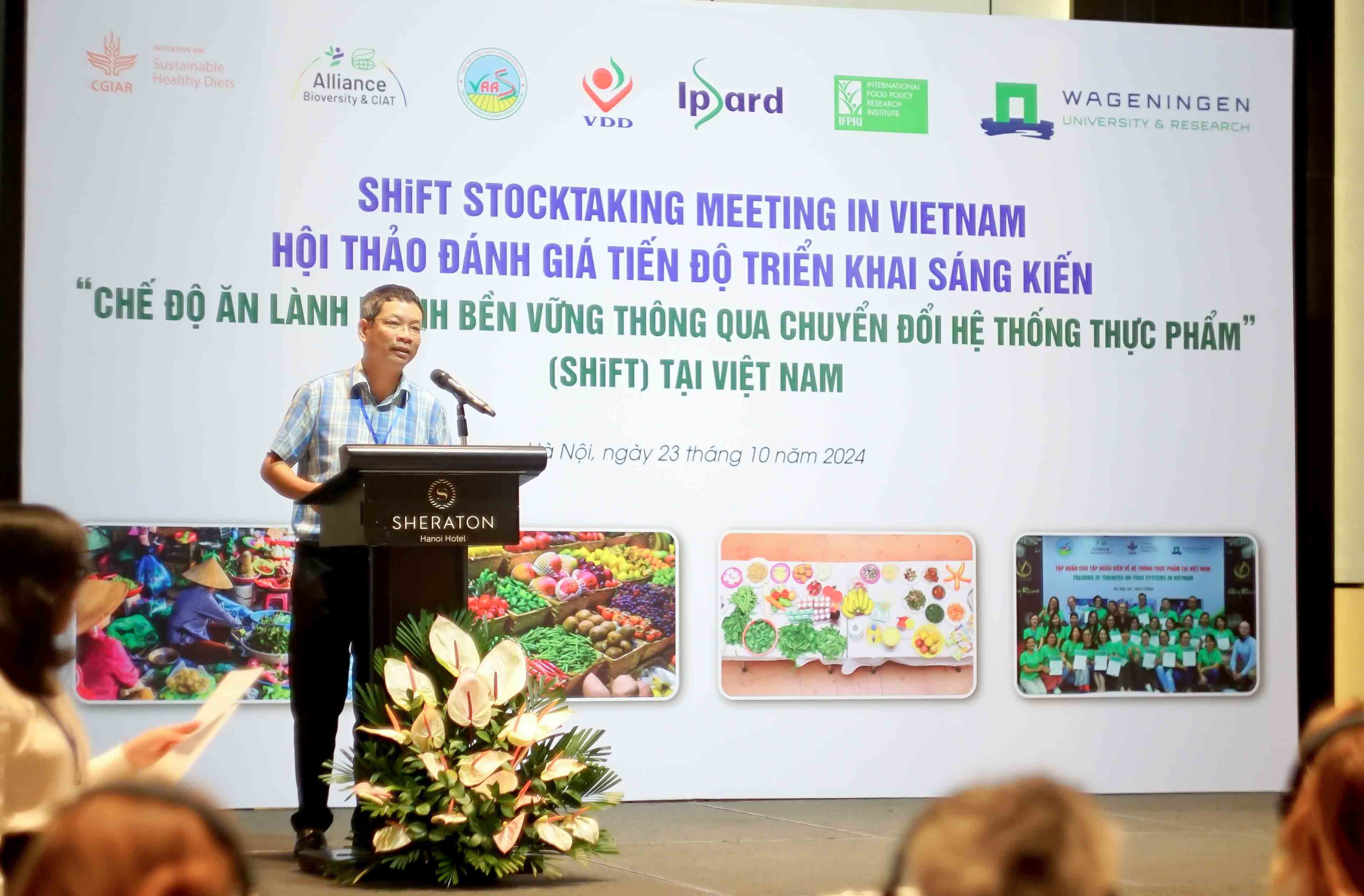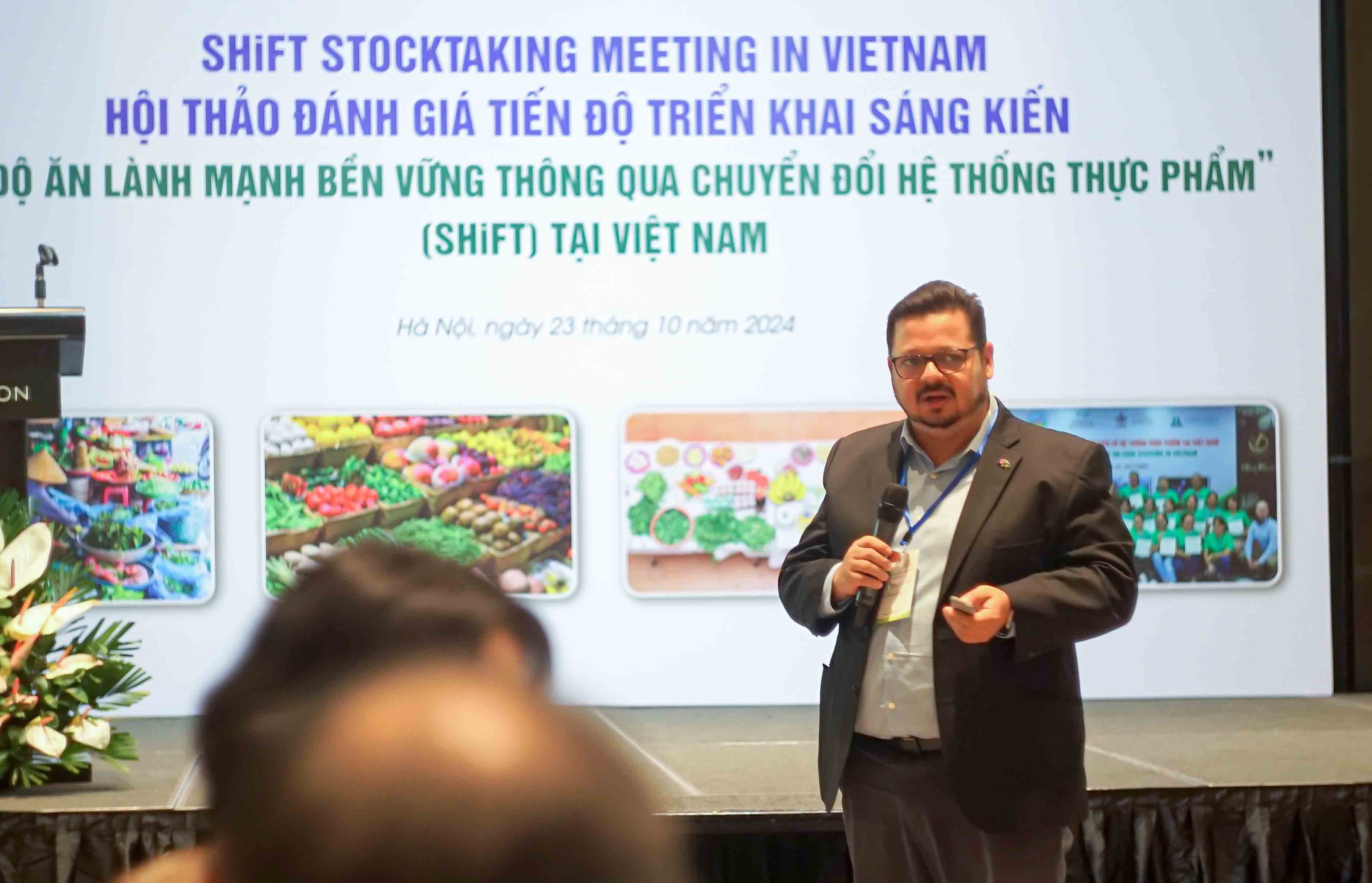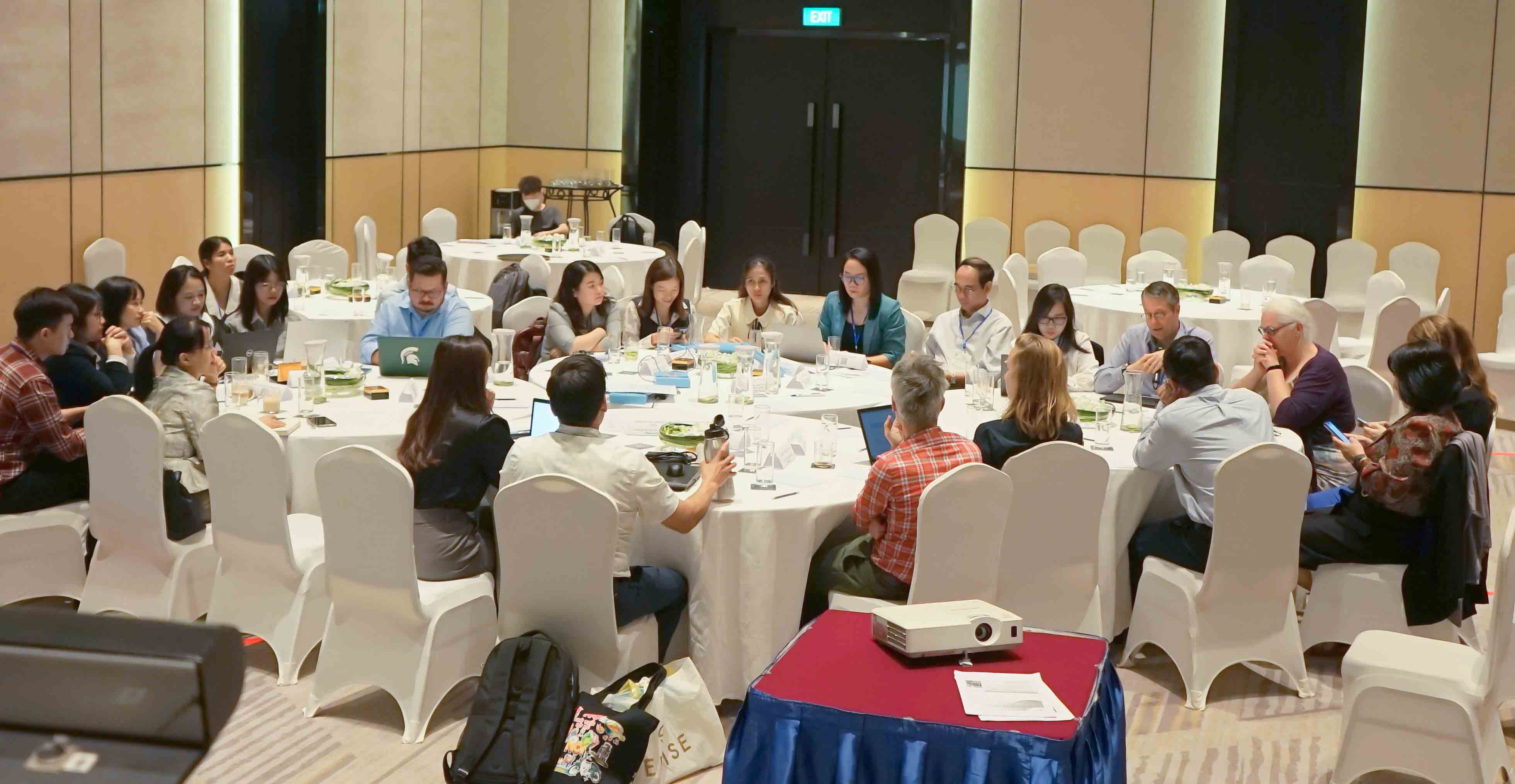i) Share preliminary research findings of the SHiFT initiative in Vietnam after nearly three years of implementation;
ii) Discuss how these research results contribute to the transformation of food systems in Vietnam;
iii) Share an overview of SHiFT’s follow-up activities within the CGIAR Program on Better Diets and Nutrition for the 2025-2030 phase and explore how this program can support the transformation of food systems in Vietnam in the future.
This event attracted over 60 delegates and SHiFT partner members, including representatives from Wageningen University and Research (WUR); the International Food Policy Research Institute (IFPRI); the Bioversity & CIAT Alliance; the National Institute of Nutrition (NIN); the Vietnam Academy of Agricultural Sciences (VAAS); the Institute of Policy and Strategy for Agriculture and Rural Development (IPSARD); the International Cooperation Department of the Ministry of Agriculture and Rural Development; and representatives from various organizations, research institutes, and universities (HUST, CTU, CTUMP).
Photo: Workshop event









Source: Bioversity & CIAT Alliance
The “Sustainable Healthy Diets through Food Systems Transformation” (SHiFT) initiative was developed with the primary goal of promoting and ensuring sustainable healthy diets for everyone through food systems transformation. The initiative focuses on fostering sustainable food consumption and improving the supply of nutritious, safe, affordable, and sustainably produced food. At the same time, it aims to enhance livelihoods, gender equality, and active participation of all stakeholders in the food system.
The SHiFT initiative spans three years (2022–2025) with five key components:
Consumers and food environments,
Micro, small, and medium enterprises and informal sector actors,
Governance and inclusive food systems,
Trade-off scenario analysis, and
Driving food system transformation.
The initiative seeks to promote the adoption of potential solutions by stakeholders to increase demand for sustainable healthy diets; enhance the capacity of micro, small, and medium enterprises and the informal sector to provide sustainably produced nutrient-rich food and create inclusive income opportunities; and address issues related to gender equality, youth participation, and social inclusion within food systems.
Stakeholders are equipped with knowledge and capacity to engage in governance processes and issues related to food system transformation towards sustainable healthy diets. The initiative works to reduce trade-offs between food system outputs related to inclusivity, sustainability, climate change, food safety, and diet quality, while implementing consistent, multi-sectoral actions to accelerate food system transformation toward sustainable healthy diets.